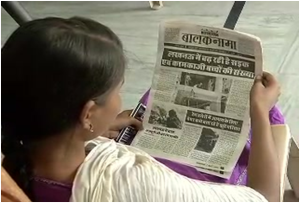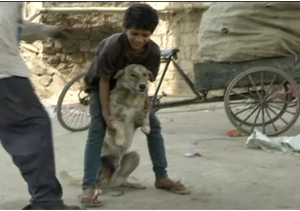STORIES FROM THE BY LANE
RUN FOR LIFE
My body aches. Unknown hitherto I wake up to new muscles
existent in different parts of my limbs. But my heart soars. I have completed
my first half marathon.
It’s been a long winding road to the finishing line.
In my late 30’s I realised I could achieve what others call
impossible for a woman.
I am a woman, working. I am a mother of two. And no I am not
estranged from my husband.
I am no feminist either.
But I believe in human spirit.
Couple of years ago I ended up in hospital for breathing
trouble and stress induced trauma. Quiet a mouthful and fancy excuse to spend a
day in clinical circumstances marooned from the digital communication. I was
labelled as cardiac suspect. But that one day and night gave me time to
retrospect on my life and my unfulfilled or unrealised dreams.
Dreams are those that don’t let you sleep. How often have I
read that, I would wonder in my head.
Then when is it that I started to sleep...away? I went in flashback.
Started to rewind the tape till it came to screeching halt to one particular
incident.
I had finished my exams. It was a winter morning and I was
all ready and set to go out for a morning run. My grandfather used to go for morning
walks every day. He spotted me running on the road. As I was about whiz past
him, he stopped me. “You are grown up enough to realise what you are doing,”
his tone rebuked me. “Few days later you will be in Xth standard, it’s time for
your studies and not running,” he hinted me to go home. I was embarrassed and
immediately turned around. I didn’t go out for a run again.
The tape in my head went forward a little and stopped at the
scene from my college. I was late to submit my assignment for geography field
study. The professor was lenient with other defaulters but when it came to me,
she lost her c
ool. “You think you are too smart, right?” she thundered. I could
see myself standing in front of her bewildered. She hasn’t been angry with
other girls before me. They were all asked to submit it in a day. Her scathing
rebuke lashed out at me “If all that you are interested in is basketball and
swimming, I suggest you drop out from my class. Because I won’t tolerate this
even if you are the topper,” she continued. “I don’t want any excuses and you
have two hours to finish it and bring it to my table,” she said as she prepared
to leave. Sweats started to gather in my forehead. I made a last ditch attempt.
“Ma’am, please allow me to submit it by tomorrow. I have my selection match
now” I pleaded with her. She didn’t turn or respond.
I submitted my assignment two hours later. I never played
basket ball again. I didn’t study geography either beyond that semester. It
used to be my favourite.
The tape goes forward a little. My son tries to learn to
cycle. I am in my late twenties. I run after him on the road in front of my
house. Our elderly neighbour was watching us from his first floor balcony. He
calls after me. “Bouma (daughter-in-law in Bengali) you go home and ask your
husband to teach dadabhai (endearment for grandson in Bengali)to cycle. It
doesn’t look good for you to struggle and run behind him,” he says with a
gentle smile on his face. I smile back hesitantly and nod my head in agreement.
“Honey, let’s go home. Mumma’s legs are aching,” I try to reason with my son to
take him back.
Years of teaching have instilled the faith that I, as a
woman couldn’t achieve my dreams.
Back in the hospital doctors were worried because I used to
smoke. Regulated it was but nonetheless addiction to nicotine was injurious and
my body had started to show the effects of the poison. They told me that I
needed to distress myself because surely I can’t quit my addiction.
I wondered why? “Oh most men can’t do it. They try but it’s
hard. So even if you can’t, at least try to reduce it and have detoxifying
nutrients to help boost your immunity,” the doctor advises sombrely.
The three men in my life stood by me. My husband and my boys
believed I was stronger than others. They plodded and I resolved. My journey to
the finishing line started.
I gave up smoking. I joined a gym. Six months later, I ran
for the first time for 5 kms in public on the roads of the capital of the
country.
Most women like me in Indian subcontinent face the same as I
did. My girl friends are all on a series diet dreaming to get back to shape and
not health. Because girls and women of educated, cultured family don’t
participate in sport. It’s not ladylike.
I fought with myself and my inhibitions. Three pairs of eyes
watched over me non-stop.
Two years after that fateful hospitalisation I finished my
first half marathon in two hours and fifty minutes. The timing was not
important but the fact that I reached the finishing line in time, was
important.
I have been diagnosed with thyroid problem and I am a
glaucoma suspect. Both are hereditary disease.
Now that I am a runner and an addict of running I know being
healthy does not guarantee freedom from disease. It means being free from
inhibitions and the spirit to fight and live life to the fullest.
Women need to be healthy to build a healthy society.
My run from the by-lane has started.


